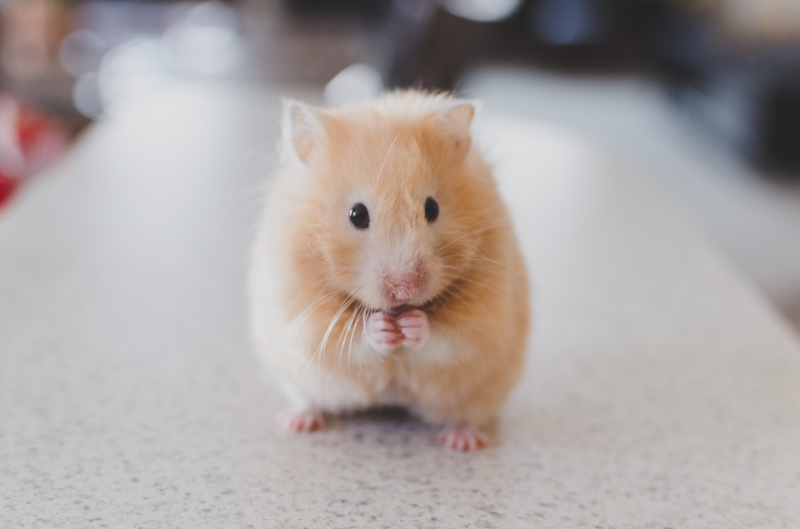Hamster
The Hamster, a small and endearing rodent, is a beloved household pet and a popular member of the animal kingdom. Recognized for its compact size, furry appearance, and distinctive cheek pouches, the Hamster is one of the common animals that start with the letter "H." These rodents belong to the subfamily Cricetinae and are native to various parts of Europe, Asia, and the Middle East.
One of the most distinctive features of hamsters is their cheek pouches, which are large, stretchable pouches located on both sides of their face. These pouches serve as a convenient storage space for food, allowing hamsters to gather and transport large quantities of seeds, grains, and other small items to their nests. This adaptation is particularly useful in the wild, where hamsters can efficiently collect food and store it for later consumption.
Hamsters are known for their nocturnal and crepuscular behavior, meaning they are most active during the night and dawn. This behavior aligns with their natural instincts as burrowing animals, seeking safety and avoiding predators by staying active during low-light conditions. In captivity, this can make hamsters ideal pets for individuals who are more active in the evenings.
These small rodents are prolific breeders, and in the wild, hamsters construct burrows for shelter and protection. In captivity, hamsters are often kept in cages with tunnels and hiding spots to mimic their natural habitat. They are generally solitary animals and can become territorial, so it is essential to provide enough space and appropriate enrichment for their well-being.
Hamsters come in various species and coat colors, including the popular Syrian hamster and the Dwarf hamster. Syrian hamsters are larger and usually have a solitary disposition, while Dwarf hamsters are smaller and can tolerate living in pairs or small groups under proper conditions. The diversity in color and size adds to the appeal of hamsters as pets.
As pets, hamsters are known for their gentle nature and relatively low maintenance. Providing them with a well-balanced diet, a clean and secure living environment, and opportunities for physical and mental stimulation contributes to their overall well-being. Additionally, hamsters enjoy activities like running on exercise wheels and gnawing on chew toys, which help keep their teeth healthy.
















